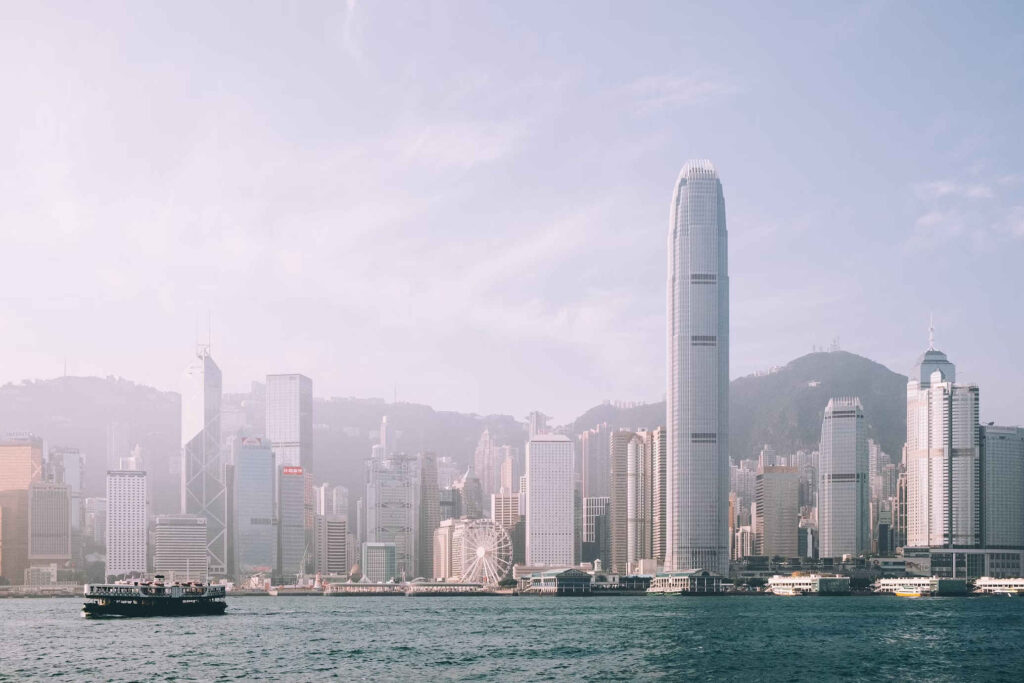The city’s new election scheme is based on its own unique history and China’s ‘One Country, Two Systems’ policy.
On December 10, Hong Kong will have its first District Council elections since the implementation of this year’s electoral reform law. It will be a litmus test for the city’s future and the success of China’s ‘One Country, Two Systems’ policy, which has so far seen the peaceful transition of Hong Kong and Macau from British and Portuguese colonial rule, respectively, to being part of China.
Briefly, the changes that happened this year to the electoral system were quite significant. While all of the council seats used to be decided by direct election, now this has been reduced to 20%. Another 40% are decided by indirect elections, and 40% are decided by the Beijing-approved chief executive, who is currently John Lee Ka-chiu.
Candidates must be loyal to China insofar as they cannot have openly called for sedition nor colluded with foreign powers. It should be noted that, until recently, being in office in Hong Kong did not even require taking an oath – which, when implemented, saw mass resignations in protest.
This change was implemented in direct response to the forces that are openly separatist, trying to pull Hong Kong away from Beijing and make it independent, as well as those who are purposely trying to muck up the city’s democracy and ruin the local government’s ability to help average people. Given all that’s taken place in the city in recent years, this is quite a reasonable approach, and it’s been a long time coming.
Hong Kong, while a part of China, has enjoyed self-rule and judicial independence since it was handed over to Beijing by London in 1997 after 156 years of British rule. In 2020, pro-independence protests broke out in the city after the introduction of a national security law, with many protesters waving British and American flags and demanding “democracy.” Western powers, meanwhile, accused Beijing of curtailing Hong Kong’s autonomy and dismantling its local democratic institutions.
To those protesters, their sympathizers and supporters, the new electoral scheme may seem totally antithetical to democracy. However, the most important thing is that the government produces results for the people. Contrary to how Western democracy and republicanism work, the social contract in Chinese civilization has always been such that if the government materially benefits the lives of the people, then the state has legitimacy in the eyes of the people.
In essence, the Chinese state is what guarantees the rights and well-being of the people. This is different to the West, where the state is what people need to be protected from in the first place. This is why Hong Kong is placing such an emphasis on the ordinary function of government ahead of kowtowing to some loud voices, who mostly do not recognize the rule of law. But it should also be noted that the basic thrust of the law is similar to what’s already in place in many Western countries, such as the disqualification clause of the 14th Amendment and the fact that all US public servants need to take an oath of office.
One such example of these loud voices is the Hong Kong Parliamentary Electoral Organizing Committee, which is a group based in Toronto seeking to establish a Hong Kong parliament (in exile) and create a new constitution, i.e. a new independent state. The group is led in part by Elmer Yuen, one of eight fugitives wanted by China for alleged separatist activity. His public statements and his group’s objectives of “self-determination” and “sovereignty” would indeed make his activities illegal under Chinese law. Yuen did not respond to a request for comment on this topic.
At the same time, this organization also makes it clear that it is not just influenced by Western countries, the US and the UK in particular, but that it wants to emulate them. It is obvious that this has to do with the fact that Hong Kong was a British colony for so long, and many Hongkongers developed a sort of unique identity. One notable poll from last year found that 76% of young people in the city identify as Hongkongers, while only 2% identify as Chinese, though many in the pro-Beijing camp have tried to discredit this poll and the agency behind it.
Even if it were the case that Hongkongers, especially young people, wanted to retain a unique identity, the idea of ‘One Country, Two Systems’ is necessarily built on this foundation. This year’s electoral scheme is a hybrid between Western-style democracy and Chinese-style governance. It is a system that prioritizes results, procedure, and decorum over polarization and sedition. Recent years have shown that Western-style democracy cannot withstand significant pressure and that events like the Capitol riot in Washington, DC, which bore a resemblance to the Hong Kong riots, can occur without foreign intervention.
Hong Kong is a vibrant, eclectic, and truly unique place. Its unique history and culture have made it one of the greatest places in the world. But there are still some problems and excesses, of which rampant inequality and ballooning housing costs are some of the most notable. Addressing these issues will take serious results-driven governance – not petty partisanship.
There’s also the fact that foreign powers are certainly tied up in Hong Kong’s internal situation and must be exorcized. As an anecdote, my first time in Hong Kong, I met at least one person – though several others I suspected – who admitted to having ties to US intelligence, which I found to be shocking and something that almost certainly never happened just across the border on the Chinese mainland.
Hong Kong’s new electoral scheme will address both of these areas and help improve the lives of locals. That’s a win-win in any reasonable person’s book.
Image credit: Dan Freeman

